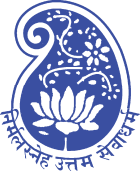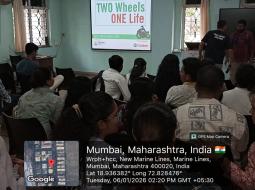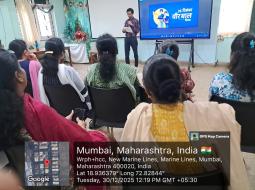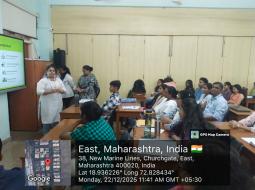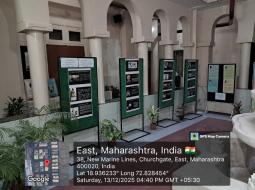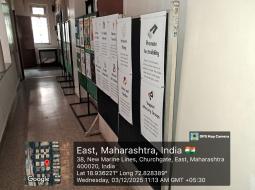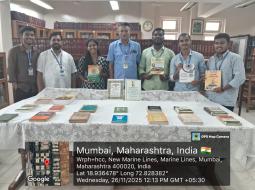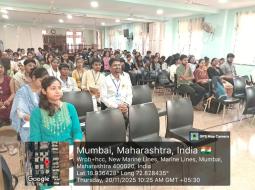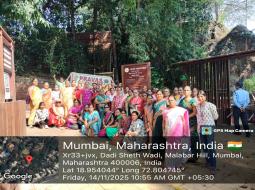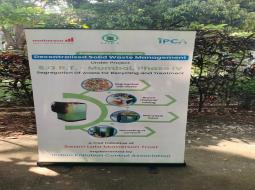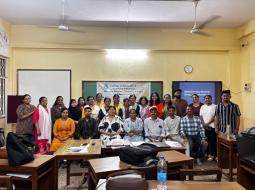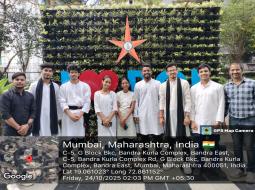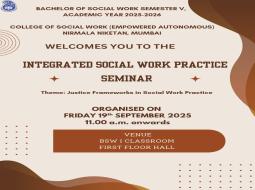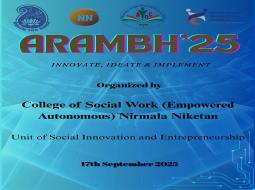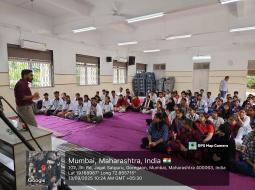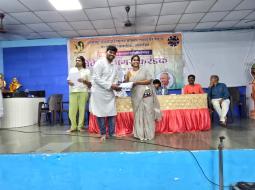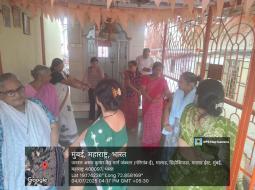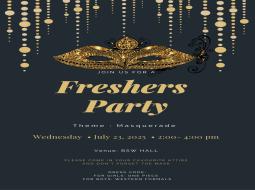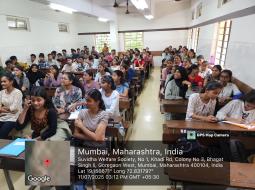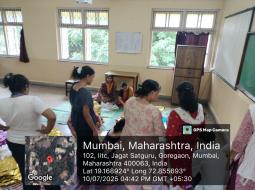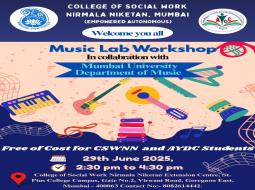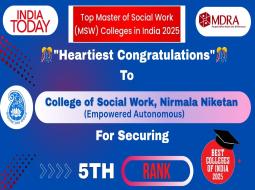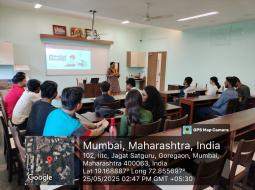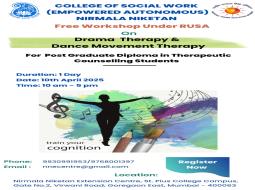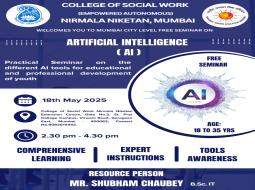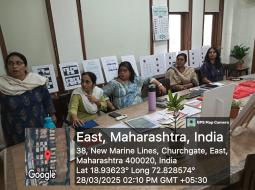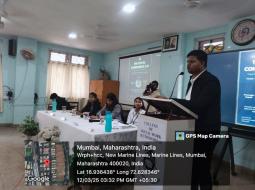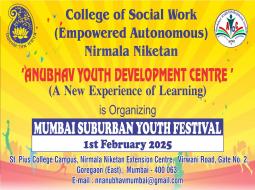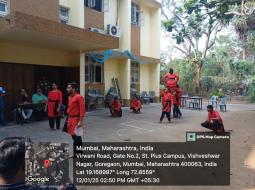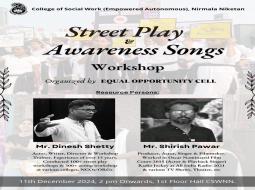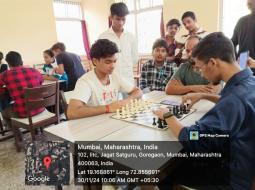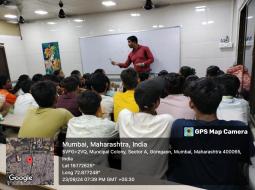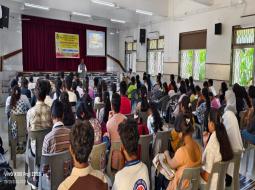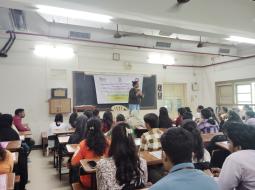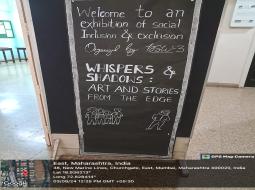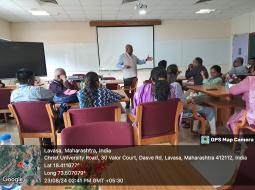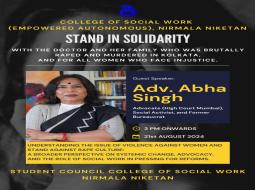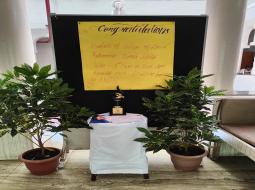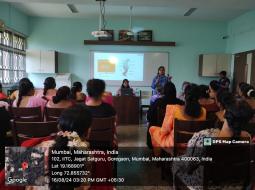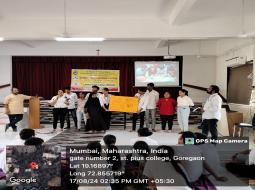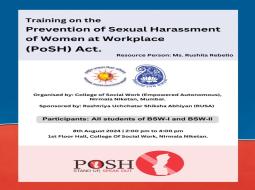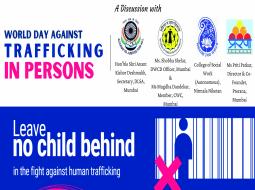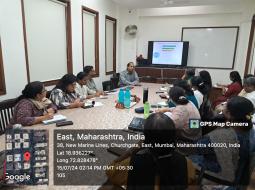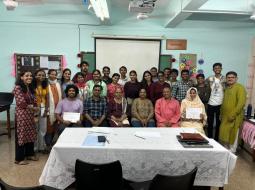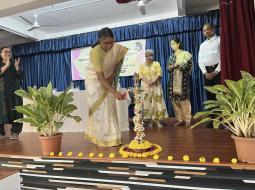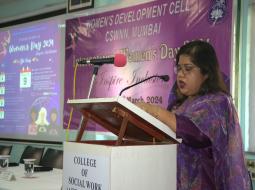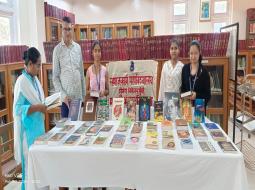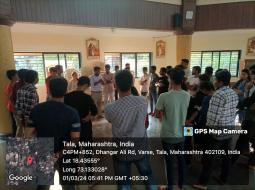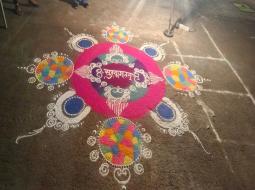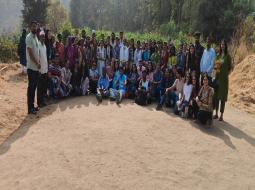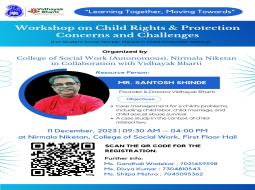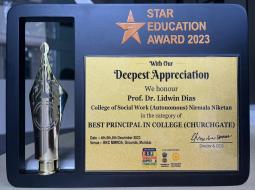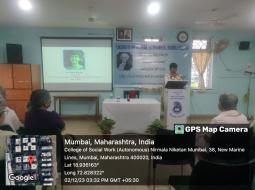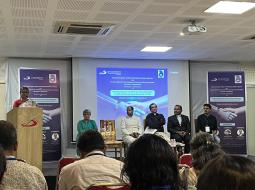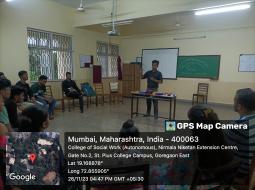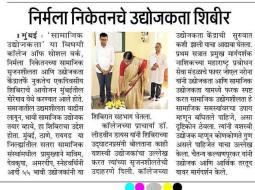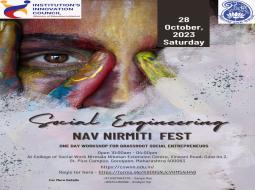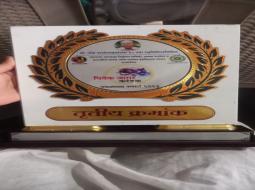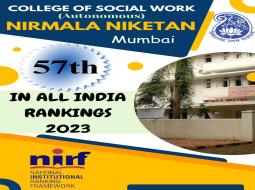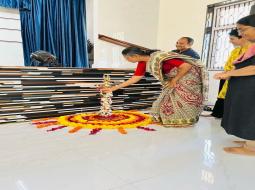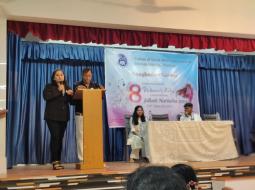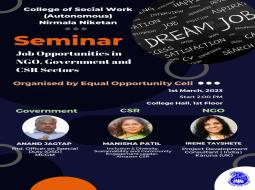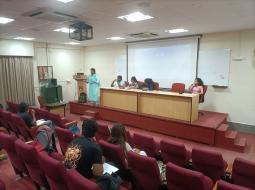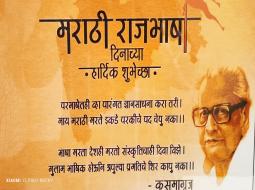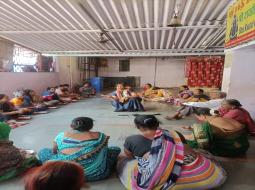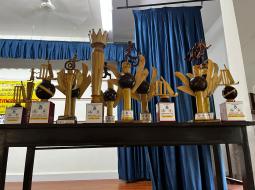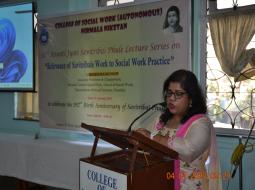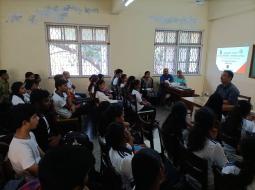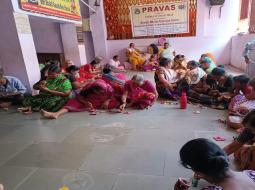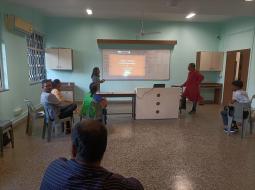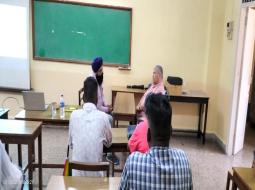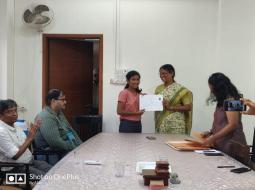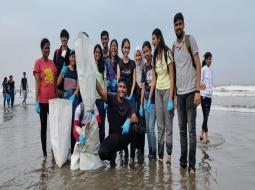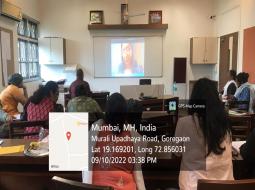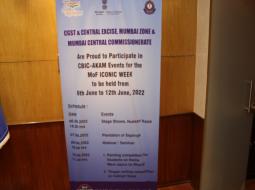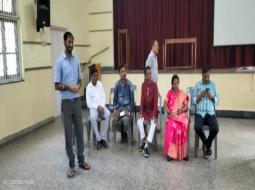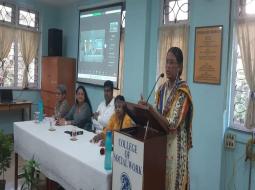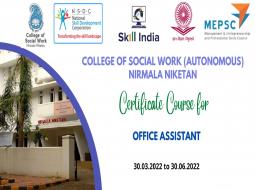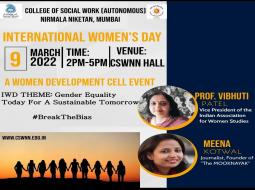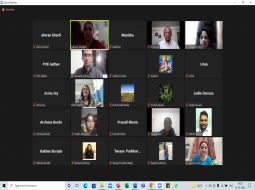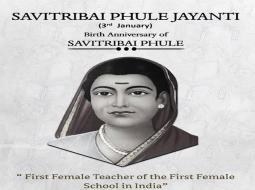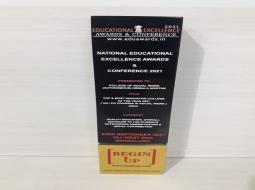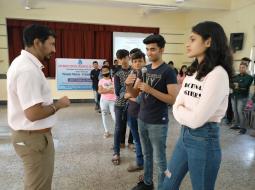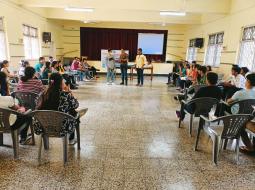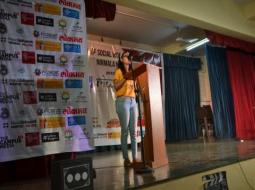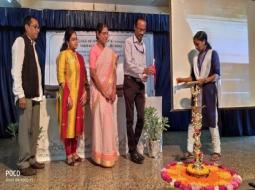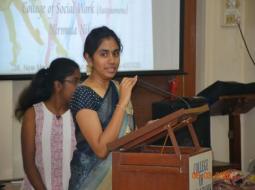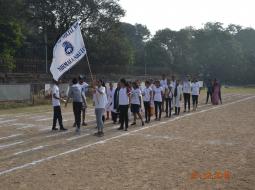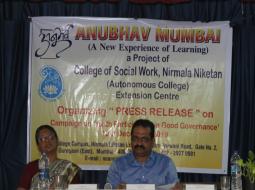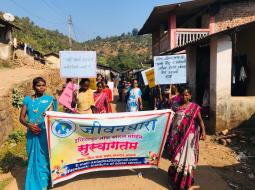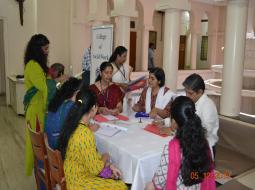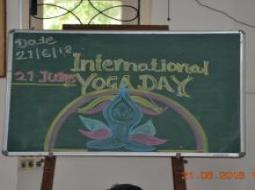The College provides a generic course of studies both at the M.S.W. and the B.S.W. levels. A semester system of three years has been adopted for the B.S.W. course since in 2009, while the M.S.W. course is an annual programme of two years. The curriculum is so constituted so as to ensure that the student has a broad base of the necessary knowledge, skills and attitudes to function in a variety of settings related to the existing job environment in the Indian scenario. Despite being generic, the course also encourages the students to deepen their interest in certain specific areas through the type of fieldwork selected, research study undertaken, term paper topic chosen and optional subjects selected as electives.
All full-time faculty have the Master’s Degree in Social Work and some also have an M. Phil or a Ph.D. degree. Several visiting lecturers teach full courses (papers) as they contribute to the inter-disciplinary base of the curriculum. These visiting lecturers are drawn from the Social and Behavioral Sciences and from other professions with which social workers collaborate.
MASTER’S & BACHELOR’S LEVEL PROGRAMMES
The curriculum consists of relevant aspects of both theory and field work to help students enhance their practical understanding of social work practice.
THEORY
Theoretical perspectives provided in the programmes hopes to achieve the following objectives:
- acquire knowledge of the functioning of individuals and groups in social systems, the interrelationships between them and the manner in which they promote or impede a healthy social functioning,
- obtain knowledge from other disciplines which contribute to the understanding of persons in the bio-psycho-social matrix,
- develop professional capacity for identification of issues and problems violating the human rights of groups and communities and design effective responses for affecting a meaningful change in their situation,
- attain the capacity to select and order priorities, to plan, to make realistic goals, and select appropriate strategies to fulfill the goals,
- develop skills in the utilization of social work intervention methods and adopt ethical practices using the principles of the profession while working with individuals and families, groups and communities.
FIELD WORK
Field Work is an integral part of the programme of training in social work. It consists of practicing social work under the guidance of trained field instructors in selected social welfare agencies and organizations. It enables the student to see the applicability of theoretical knowledge taught in the classroom to actual situations requiring social work intervention. It is both goal-oriented to solve a particular problem to which the student addresses his / her activities and learner-centered in relation to his / her particular interest areas and aptitudes. Field work has the dual purpose of promoting the student’s own learning while contributing to the development of the people with whom he / she works, especially the disadvantaged sections of our society.
Practical experience in fieldwork aims at the following objectives:
- provide opportunity for the integration of classroom learning and field practice and vice versa (feedback mechanism for both class and field)
- develop skills through learning how to utilize the knowledge learnt in the classroom for analysis of problems affecting the target groups and selection of the appropriate means for problem-solving,
- cultivate attitudes, values and commitments of the profession and those relevant to working with the most disadvantaged sections of society,
- develop awareness of self and the way in which student’s behaviour is affected by past experiences and cultural factors, and the way in which these affect the perceptions of their response to others,
Students will be required to maintain regular recordings of the fieldwork done during the course of their study.
All students are required to dress soberly and appropriately, giving due respect to the socio-cultural practices of the people whom they work with while at fieldwork. A similar sobriety in dress code is also expected from students within the College premises and hostels.
FACULTY ADVISING AND MENTORING
Each student is assigned to a Faculty Adviser. Ordinarily a new Faculty Adviser is appointed each year. The appointment of the Faculty Adviser is based on the particular fieldwork placement of the student since each faculty member is responsible for a group of placements whether or not they directly provide field instruction in those placements. Besides being responsible for the students’ field work performance, the Faculty Adviser is also responsible for the students’ overall academic work and professional development. Any difficulties experienced by the student may be discussed with the Adviser whose function is to assist and guide the student.
The students receive individualized attention in the form of guidance and supervision from the teaching faculty. As per the Regulation of the Directorate of Social Welfare, Government of Maharashtra, the staff student ratio of the College is to be maintained at 1:14.
INTAKE CAPACITY OF VARIOUS PROGRAMMES
The need to provide individualized field instruction (practice training), demands that a relatively small number of students are admitted to the College. As per GR No. UG/54 of 2008 the College may admit the following maximum number of students every year at the entry level.1
B.S.W. (Part I)60 students*
M.S.W. (Part I)60 students*
This intake of students is relative to the staff student ratio of the particular academic year for the B.S.W. and M.S.W. programmes.
Ph.D. (as per the availability of
recognized guides at a given time)25 students
AGE & SEX
There is no minimum age for admission provided the student meets all other eligibility and admission criteria required by the University and the College. Admission is open to both men and women students for all programmes.
MEDIUM OF INSTRUCTION
English is the medium of instruction for all courses. Hence, the ability to use English as a language is essential. Fluency in either Hindi or Marathi is required for working with the client system.
TEACHING
Theory classes are held on Mondays, Tuesdays, Wednesdays, and half day on Thursdays of the teaching weeks. Fieldwork days are half day of Thursdays, and entire Fridays and Saturdays, with due regard for agency timings. Most of the classes are conducted with a combination of lecture, presentation and discussion method where participation from students is strongly encouraged. The students are given an outline of the content of each course as well as bibliography of the required reading at the beginning of each year. Students are expected to supplement classroom learning by independent reading. Required readings are prescribed from several sources which are available in the library.
EXAMINATION AND MARKING SYSTEM
All courses will follow the systems and patterns of Assessments and Examinations prescribed by the University for the respective courses. (Refer the Course Syllabus)
INTERNAL ASSESSMENT
Every paper will have a mid semester / term end examination, the result of which will be included as the internal assessment. These examinations will not be conducted for the benefit of those whose reasons for absence were unsatisfactory. All the papers for the mid semester exam / term end tests will be of one and a half hour of duration.
Written assignments are also expected from students as part of the internal assessment(Refer Assignment Guidelines of the College).
EMPLOYMENT OPPORTUNITIES
B.S.W. and M.S.W. graduates have opportunities for employment both in India and abroad in a variety of settings: Hospitals, Schools and Institutions run by Government and Non-Governmental Organisations, Counselling Services, Government Programmes for marginalised groups, Disability fields, Community Oganisations, Rehabilitation Centres, Training Institutions, Industries, Funding Organisations, Reasearch and Documentation Centres and other Development Organizations. There are increasing opportunities of employment for social workers in the areas of Social Research, Media and Communication, Corporate Social Responsibility Departments, Action Groups and Legal Aid Cells.
SHORT TERM COURSES
The College also provides University approved Short Term Courses in various professionally relevant areas in order to enable social workers to be competent in their undertakings and areas of specializations (Refer Short Term Courses Syllabus).
